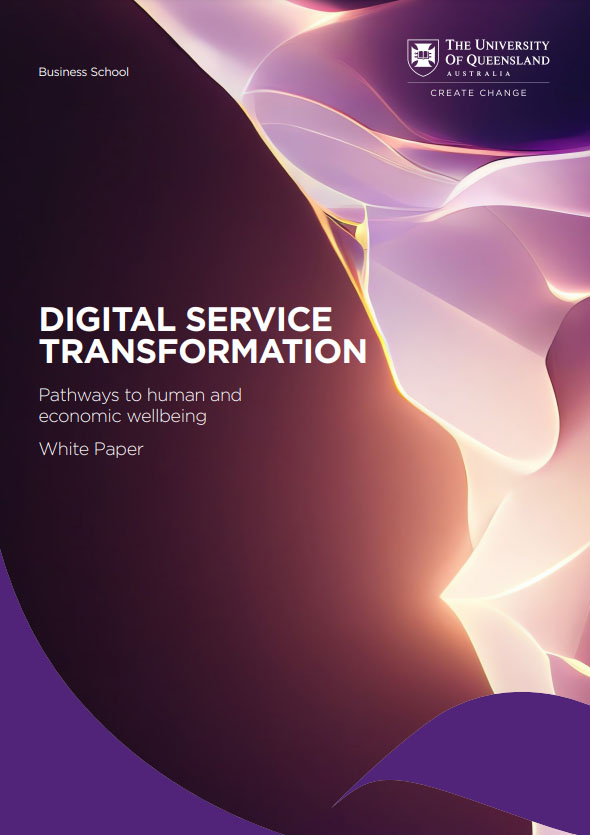Digital technologies such as AI are changing the way we live and work, and are rapidly transforming jobs, in particular in the service sector – from finance and retail to medicine, hospitality, tourism, transportation, construction, and more.
With this change comes significant challenges and opportunities.
Seventy percent of Australia’s gross domestic product (GDP) stems from services and four out of five Australians are employed by the service sector.
So how can Australian service firms stay competitive amidst the digital transformation of the service sector?
University of Queensland experts, Professor Janet McColl-Kennedy and Associate Professor Christoph Breidbach, met with academics and industry, including KPMG, Deloitte, CSIRO, BDO, Ernst & Young, Oracle, Avanade, Caterpillar and Data #3, to develop a white paper outlining how Australian service firms need to refine existing customer experiences and create service innovations to remain competitive.
The White Paper, Digital service transformation: Pathways to human and economic wellbeing, provides recommendations for policy and practice for Australian service firms.
Key areas for consideration for organisations in the service sector that are critical for human and economic wellbeing are:
- Maintaining humanness in the age of digitalisation
- Evaluating the impacts of technology on employee wellbeing
Three technology trends that can help accelerate digital service transformation are:
- Embracing cyber-security-as-a-service
- Using blockchain technologies in service
- Creating AI value propositions
Tips for working collaboratively to achieve sustainability in service ecosystems are provided, highlighting the importance of industry, academia and government working together.




